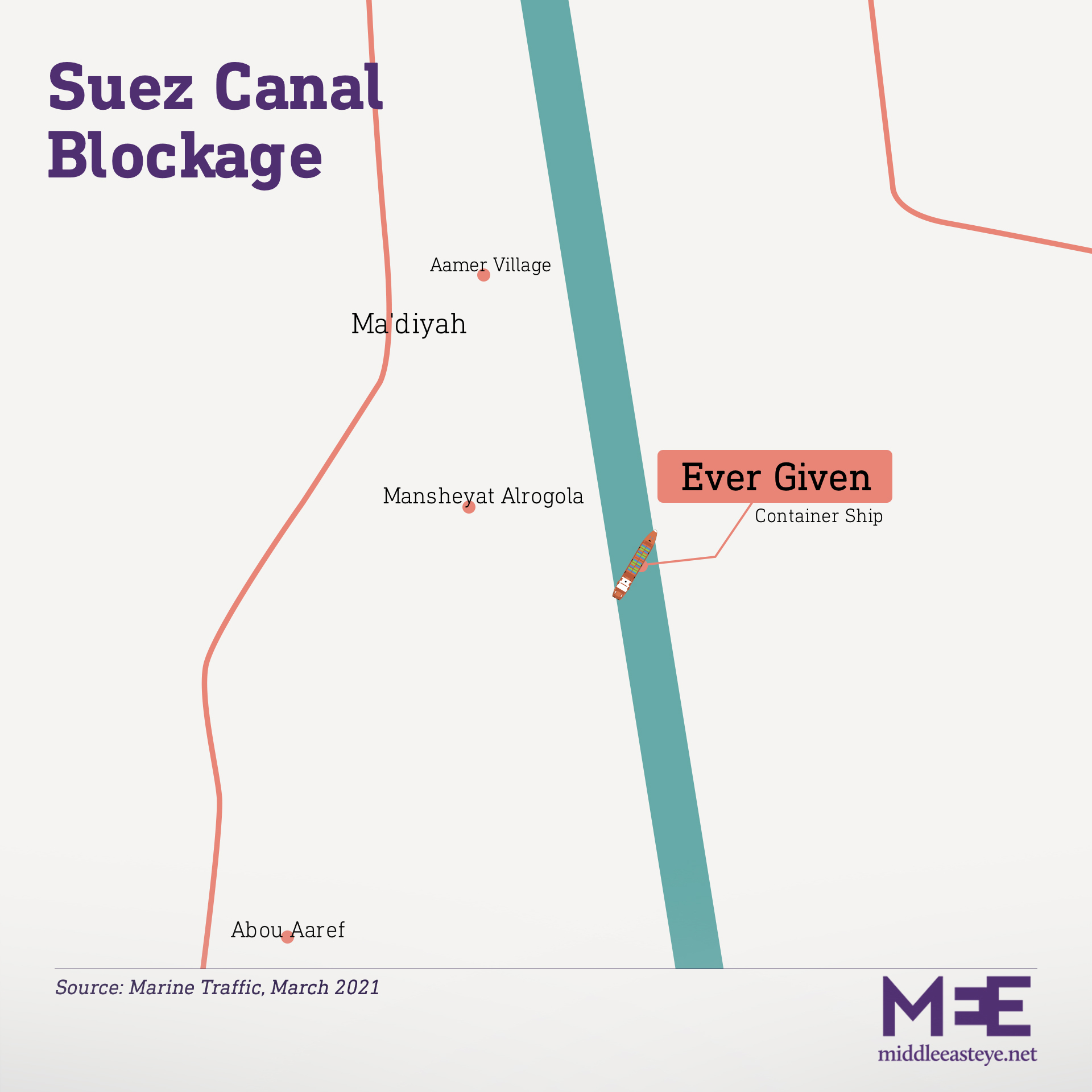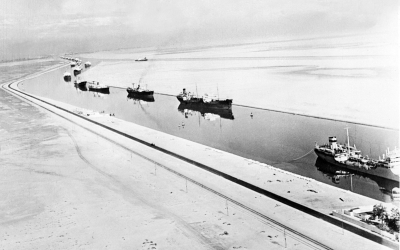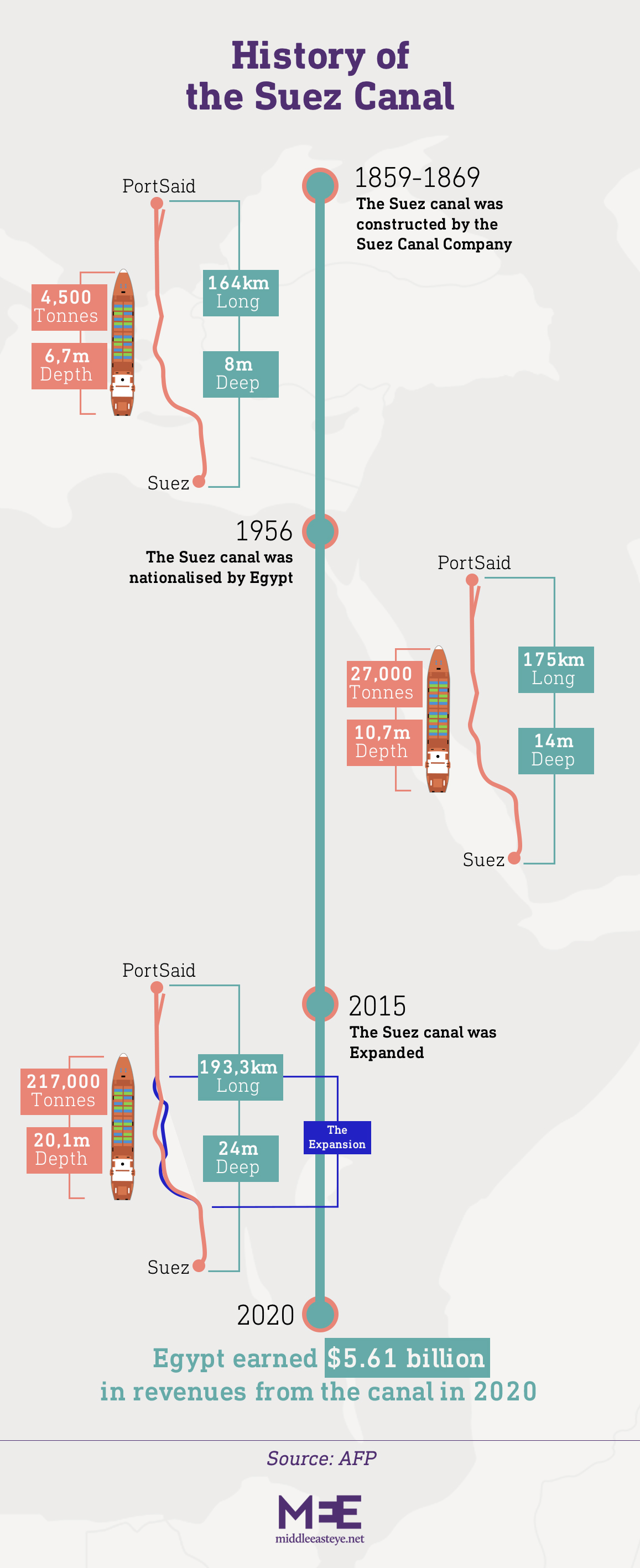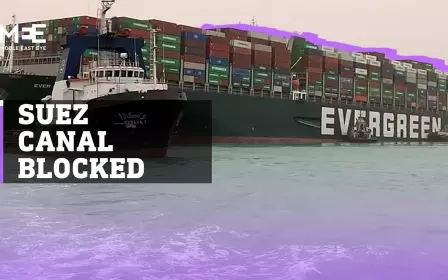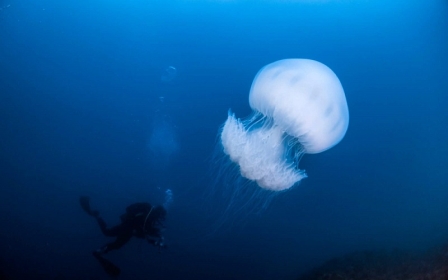Suez Canal: Egypt's race to unblock the passage
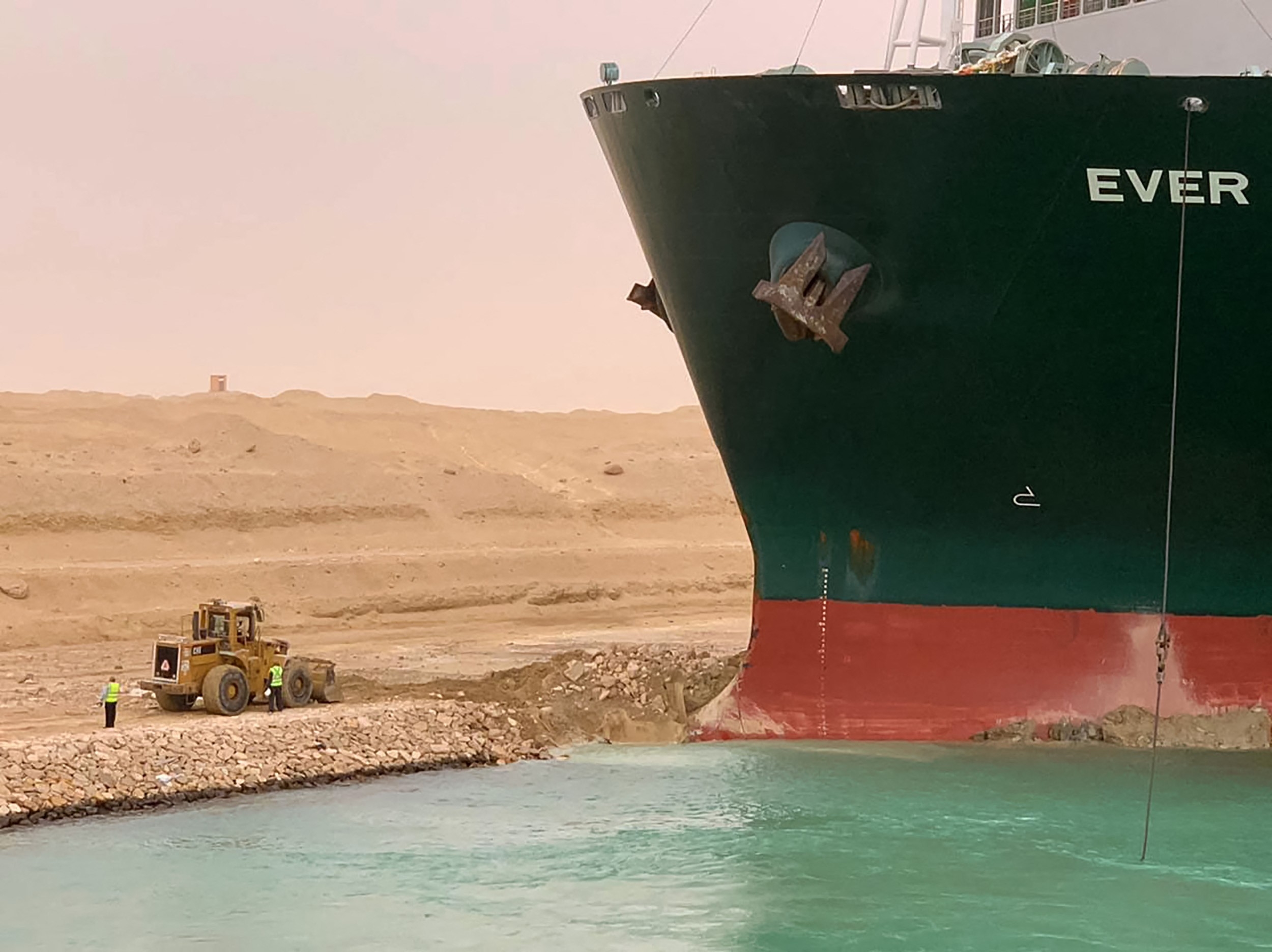
Egyptian authorities deployed all the tug and rescue boats at their disposal on Wednesday as they desperately attempt to dislodge a container vessel and unblock the Suez Canal, with the world waiting and oil prices rising.
The giant Panama-flagged Ever Given vessel, which is owned by the Taiwanese transport company Evergreen Marine, ran aground at around 18:30 GMT on Tuesday as it passed through the canal from China to Rotterdam.
The 400-metre-long and 59-metre-wide ship carried around 123,000 tonnes of cargo when it berthed and became wedged across the canal, diverting traffic and creating a long jam.
Egypt’s Suez Canal is one of the world’s most important arteries, and its closure has knock-on effects globally. The size of the Ever Given stoked fears that it would take a long time until the canal is passable again.
'We are working very quickly to bring the problem to an end and prevent delays for transiting ships'
- George Safwat, Suez Canal Authority spokesman
However, canal traffic can go back to normal within the next few hours as rescue and tug units work quickly to free the vessel and clear the waterway, a Suez Canal Authority official said.
"We are working very quickly to bring the problem to an end and prevent delays for transiting ships," George Safwat, the official spokesperson of the authority, told Middle East Eye.
The canal authority said Ever Given was most likely knocked off course by strong winds.
Safwat said the authority has deployed eight tug and rescue boats, along with several diggers, in an attempt to free the vessel.
Earlier on Wednesday, authority chairman Admiral Osama Rabie said it would not take long until traffic in the canal is back to normal.
"The problem is that the ship is considerably large," Rabie told the Egyptian news channel Extra News.
Canal upgrade
Rabie said his authority is used to such incidents.
"Thousands of ships and vessels transit the canal every year," he said. "If one or two vessels face problems, this is not a big deal."
The Suez Canal, the shortest link between the Red Sea and the Mediterranean, and Africa and Asia to Europe, underwent a major expansion in 2015.
The expansion included the digging of a parallel channel to the canal, an investment of several billion dollars that was funded by the precious savings of ordinary Egyptians.
The parallel channel cut short the travel time for ships and container vessels through the canal from the Mediterranean and the Red Sea and vice versa, and should have made long waits to transit something of the past.
However, the latest incident throws light on the canal's need for continual upgrade, especially with a new generation of gigantic container vessels setting sail, some Egyptian legislators said.
"The expansion of the canal eased traffic a lot in it," Sayed Awad, a member of the parliamentary transport committee, told MEE.
"Although such incidents do not happen every day, I think we need some more investments for the upgrade of the canal."
Vital passageway
The Suez Canal is one of the world's most important maritime routes.
Around 12 percent of the world's trade passes through the passage, especially oil and liquefied gas from production fields in the Gulf region to markets in Europe and Asia.
"This is by far the world's most important maritime passageway," independent maritime transport expert Ahmed al-Shami told MEE. "This is why problems in it will have their toll on international trade."
There is major concern over the ongoing gridlock of the canal from the running aground of Ever Given.
A huge queue of ships and container vessels is reportedly already forming, amid fears over the incident reflecting on oil prices in international markets and the cost of shipping.
Around 20,000 ships and container vessels transit the canal every year, between 50 and 55 every day, according to Rabie.
The canal is a vital source of income for Egypt and an indispensable addition to the Arab country's political weight.
The revenues of the canal reached $5.6bn in 2020, giving Egypt a much-needed financial lifeline as it battled the Covid-19 pandemic and its economic consequences, which included a choking of the tourism sector and a drop in exports, especially industrial ones.
Serious bid
Rabie has ordered the opening of an older section of the canal to ease traffic until Ever Given is refloated.
On Wednesday, the canal authority published a video showing vessels passing through the canal from the Mediterranean to the Red Sea after the reopening of the older section.
Rabie said his authority would work hard in the next few hours to bring traffic in the canal back to normal.
'We realise the heavy cost of any disruption in the canal's traffic for maritime lines and this is why we race against time so that things can go back to normal very soon'
- George Safwat, Suez Canal Authority spokesman
He added in a press release on Wednesday that the canal authority spares no effort in attempting to bring traffic back to its traditional levels.
"The accident took place because of the lack of clarity caused by bad weather conditions," Rabie said.
Egypt witnessed a sandstorm on Wednesday for the second day in a row, amid a rise in temperatures.
Some of the nation's ports, including those of Alexandria and Dekheila, along Egypt's northern Mediterranean coast, had to stop working because of bad weather conditions.
Safwat said diggers are also trying to prize the vast vessel out, battling the poor weather conditions as well as the task at hand.
"The diggers are close to freeing the vessel and canal traffic can be back to normal a short time from now," he said.
"We realise the heavy cost of any disruption in the canal's traffic for maritime lines and this is why we race against time so that things can go back to normal very soon."
Middle East Eye propose une couverture et une analyse indépendantes et incomparables du Moyen-Orient, de l’Afrique du Nord et d’autres régions du monde. Pour en savoir plus sur la reprise de ce contenu et les frais qui s’appliquent, veuillez remplir ce formulaire [en anglais]. Pour en savoir plus sur MEE, cliquez ici [en anglais].


